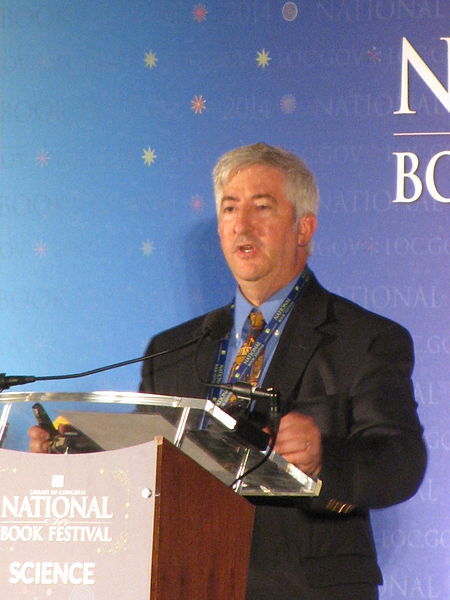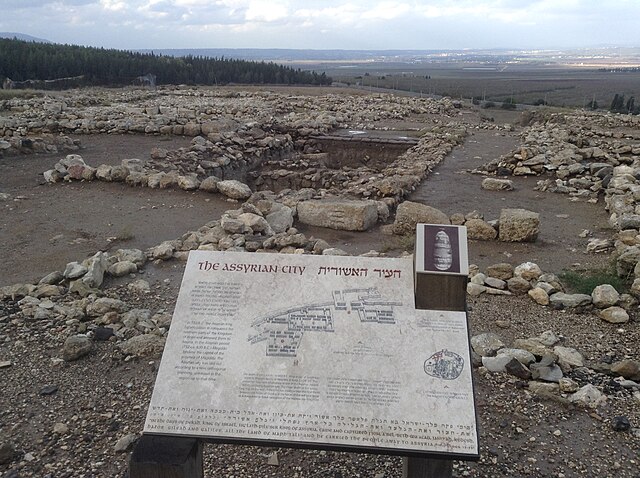Eric H. Cline is an American author, historian, archaeologist, and professor of ancient history and archaeology at The George Washington University (GWU) in Washington, D.C., where he is Professor of Classics and Anthropology and the former Chair of the Department of Classical and Near Eastern Languages and Civilizations, as well as Director of the GWU Capitol Archaeological Institute. He is also the advisor for the undergraduate archaeology majors, for which he was awarded the GWU Award for "Excellence in Undergraduate Departmental Advising" (2006). Cline served as co-editor of the Bulletin of the American Schools of Oriental Research along with Christopher Rollston from 2014–2020.
Cline speaking at the 2014 National Book Festival
Excavating at Megiddo
Tel Megiddo, called in Arabic Tell el-Mutesellim, 'Mound of the Governor', is the site of the ancient city of Megiddo, the remains of which form a tell, situated in northern Israel near Kibbutz Megiddo, about 30 kilometres (19 mi) south-east of Haifa, at the western edge of the Jezreel Valley. Megiddo is known for its historical, geographical, and theological importance, especially under its Greek name Armageddon. During the Bronze Age, Megiddo was an important Canaanite city-state. During the Iron Age, it was a royal city in the Kingdom of Israel.
An aerial view of Tel Megiddo
Late Bronze Age city gate
Gate 2156, Late Iron Age IIA, built under Solomon or during Omride dynasty, (Late Iron Age IIA, c. 900-780 BCE).
The Neo-Assyrian Empire phase, the site was now called Magiddu, c. 732-609 BCE, plan and ruins.






